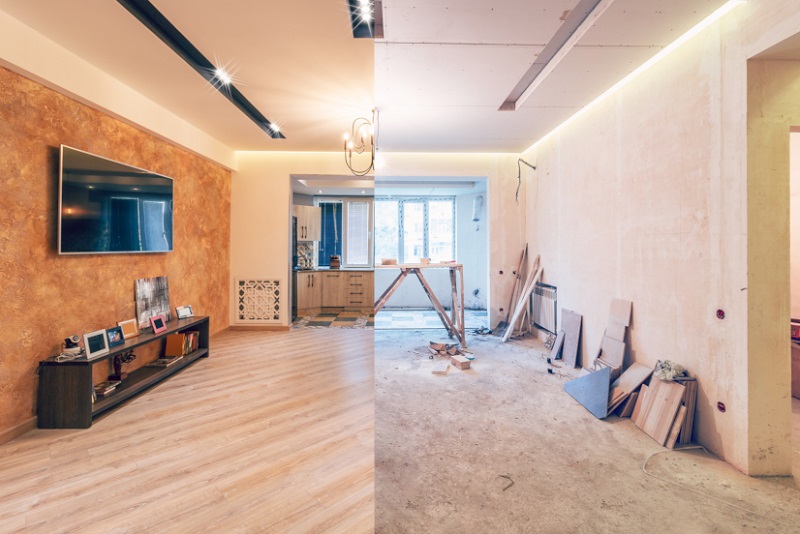Tips in Planning Major Home Renovation Projects

Many people took advantage of the lower interest rates at the outset of the COVID-19 pandemic to buy a house. While many purchased the house of their dreams, some planned significant renovations on their newly purchased homes to make them look better than when they bought them.
Some new homeowners plan to install a pool in the backyard, while others want to add a new room into the house. Some are even planning to build a new structure on their property. These are major home renovation projects that they want to implement.
But they should go through the following tips before they work on these projects.
Finalize the Plan
The first thing you have to do is finalize your plan before you do anything. A solid plan acts as your guide when you perform renovation work. The plan should include the entire process from start to finish. It should also include the list of materials and equipment you need for the job. Additionally, the plan should consist of the work schedule. That way, you’ll have an idea of when you’ll complete the project.
You should also include the estimated cost of the entire project. A detailed layout of the work containing the measurements is also essential to ensure you get the right materials for the project. This will reduce the cost of the renovation and complete the task faster.
Suppose you’re planning the renovation to increase the house’s resale value. In that case, you should use durable and high-quality materials. You should also make sure it adds value to the home.
Understand Local Ordinances
Before renovating your home, you should check all applicable local and state laws in your location. Failure to get the necessary permits will delay or end your project before completing it. You should also check with your homeowner’s association (HOA) for the rules and guidelines associated with your home renovation project. Aside from the HOA and government, you should ask a reputable contractor about the permits you need to get when renovating your home.
Prepare a Contingency Plan
When you plan to renovate your home, you should make sure to have a contingency in case your original plan does not work out. You should remember that even the best-laid plans have issues when people start working on the project. Preparing for these issues reduces the anxiety that comes with any delay in implementing the project.
These issues include the unavailability of some materials you want to use or some fixtures that are not suitable for your plan. A contingency plan allows you to proceed with the project and reduce the delay you’ll experience when working on the project.
You should also set aside funds for your contingency plan. For instance, if the original materials are not available and the replacement costs more than the original, you can use the contingency funds to purchase the replacement materials. In this situation, you do not need to wait for the arrival of the materials you need for the project since the replacement materials are available for you to use. So, your project will not experience delays when you work on it.
Set a Budget
Aside from your plan, the budget is another essential aspect of your home renovation project. Without a budget, you cannot renovate the house. The budget should take into account everything that you need for the project. It should include the materials and tools necessary for the project.
You should also set aside a budget for renting heavy machinery, especially if you plan to build a swimming pool in the backyard. In this situation, you’ll need an excavator to excavate the ground where you’ll set up the pool. On the other hand, if you’re planning to build a separate structure in the backyard, you’ll need welding machines and generators. The equipment ensures continuous work on the project.
As indicated earlier, you should also set aside funds for contingency expenses if you encounter obstacles when you follow your original plan.
Plan the Work Schedule
You should also plan the work schedule for the project. When planning the schedule, you should consider any events or holidays that can delay the project, especially when the contractor does not work during these days.
Being realistic with the timeline is essential to avoid issues on the quality of the work. You should also set deadlines for specific project segments to give the contractor a goal to reach. To prevent delays, the work schedule should also include the time for the contractor to remove waste and debris from the site.
Renovating a home requires proper planning to ensure the accurate and timely completion of the project. With a newly renovated home, you can sell it for more than you bought it when you eventually move to a new house.